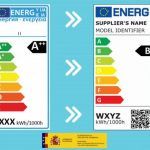The project, with a duration of 4 years, aims to develop analysis and decision-making instruments that justify and favour the implementation of distributed energy microgrids for the self-supply of isolated productive enclaves in Spain, Chile and Mexico.
The University of Almeria can help to alleviate the depopulation of rural areas and improve the quality of life of their inhabitants, through the development of analysis and decision-making tools to implement energy microgrids in these areas to enable their self-sufficiency, based on the preservation and improvement of traditional activities and respect for the natural environment.
The project has a duration of 4 years and aims to develop analysis and decision-making tools that justify and favour the implementation of distributed energy microgrids for the self-supply of isolated productive enclaves in Spain, Chile and Mexico. Initially, three types of local micro-industries present in the countries participating in the project were selected as case studies: the production of wine and distillates, the processing and preservation of milk and its derivatives, and the canning industry of traditional crops and foodstuffs. Subsequently, given their relevance for the local environment and the existence of operational farms in Mexico, the solar heat and water supply for greenhouses has also been included.
Among the tools under development is an interactive map that will identify the agricultural districts with the greatest potential for developing projects based on the solar resource and the micro-industries existing in them, as well as an on-line calculator for installations that will allow promoters and potential users of energy plants to calculate their technical and economic viability.
It is worth highlighting the broad scope of this type of project given its potential for creating specialised employment and promoting local development in a context such as the current one, in which the fight against rural depopulation should be based on the preservation and improvement of traditional activities and respect for the natural environment. In fact, these conclusions are part of a 2018 report by the European Court of Auditors which, on the contrary, also recognises the limited practical realisation of the great potential of renewable energy for sustainable rural development and its significant synergies.
Source: UAL News
More information:
Building the future of rural areas together
Long-term vision for rural areas: stronger, connected, resilient, and prosperous
Greenhouses join plants in the energy conversion business







Leave a Reply